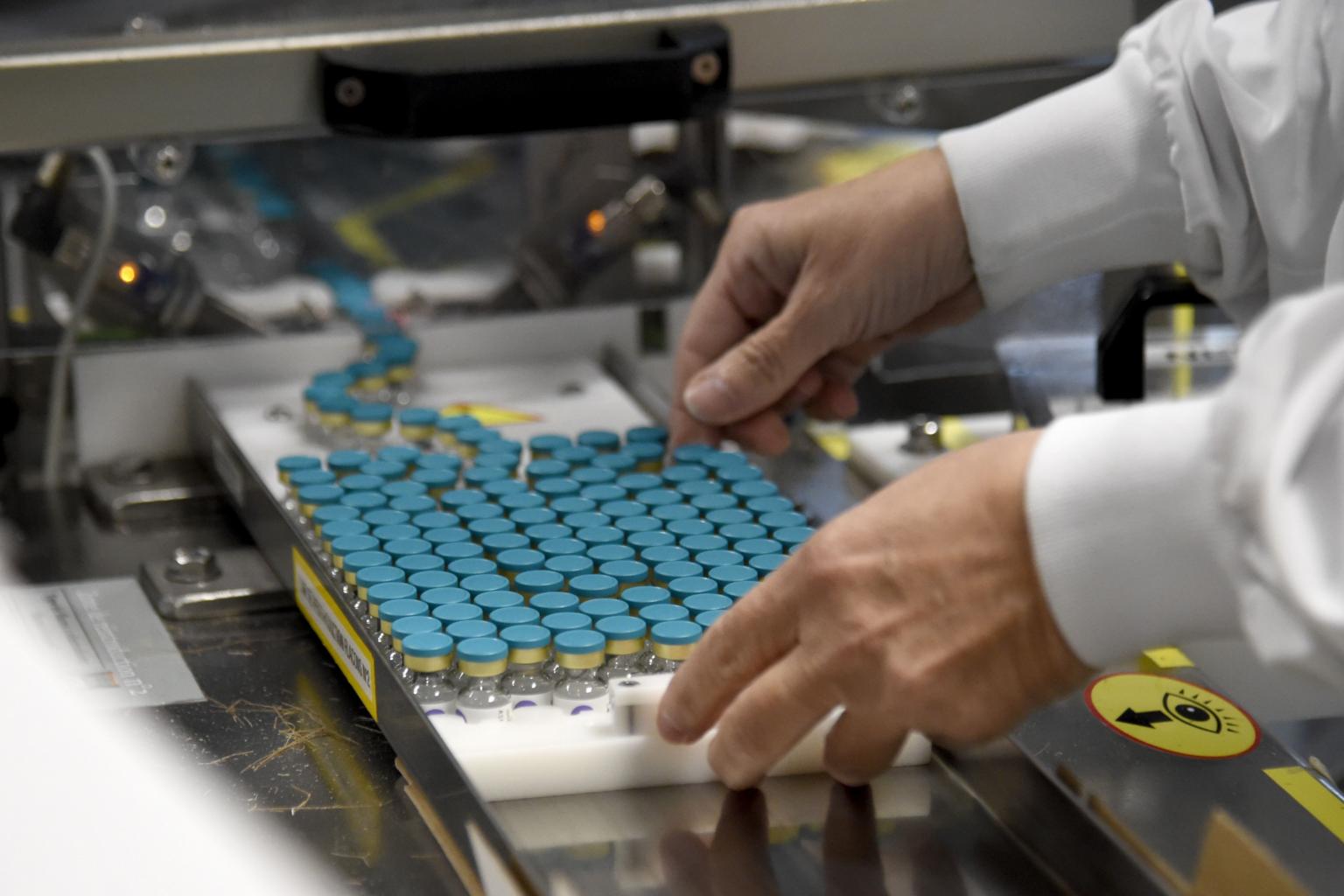Questions raised over EU planning as Europe scrambles for vaccine supplies
Sign up now: Get ST's newsletters delivered to your inbox

Behind the scenes, the European regulator came under heavy pressure to grant vaccine approval as quickly as possible.
PHOTO: AFP
LONDON - The European Commission, the executive body of the European Union, has approved the Pfizer-BioNTech coronavirus vaccine for use across the 27 EU member states, hours after the European Medicines Agency (EMA) issued a recommendation on Tuesday (Dec 22) in favour of the vaccine.
European Commission President Ursula von der Leyen said that the first batches would be shipped from the manufacturing site in the coming days for distribution across the EU.
"This is a very good way to finally start turning the page on Covid-19," Dr von der Leyen noted, adding that the vaccine is "a true European success story".
The way is now open for a possible start of vaccinations in Europe on Dec 27.
The EMA had initially set Dec 29 as the date to announce its decision on the admissibility of the vaccine, roughly three weeks after Britain became the first country to authorise the jab.
Initially, European officials scoffed at Britain's rush, contrasting it unfavourably with the supposedly more rigorous authorisation procedures implemented in the EU.
Although few EU officials said so publicly, in private many of them implied that Britain's determination to be the first to introduce the vaccine was politically motivated. The suggestion was that the move was prompted by the desire of the British government to prove to its people the alleged benefits of being outside the EU, which Britain left at the start of this year.
Thus, while Britain's medicine regulatory body used emergency provisions to rush through the vaccine's approval for British patients, the EMA claimed it was subjecting the Covid-19 vaccine products to its standard and laborious examination procedure before these could be made available to EU citizens.
"A vaccine's benefits in protecting people against Covid-19 must be far greater than any side effect or potential risks," the EMA proclaimed sternly in a press release last week, seeking to fend off questions about its allegedly slow working procedures.
Yet behind the scenes, the European regulator came under heavy pressure to grant approval as quickly as possible. And most of the pressure originated from Germany, the home country of the vaccine which the whole world now wants, but which German citizens, now risking soaring infection rates, cannot access.
Hence, the regulator who claimed it would not be rushed mysteriously discovered that it could, after all, shave off almost a week of its approval procedure.
Yet this is hardly the end of the story, for a new controversy is developing over the EU's preparations for the mass vaccination campaign which lies ahead.
BioNTech and Pfizer initially offered the European Commission a total of 400 million doses of the vaccine. Still, the bloc's executive Commission chose to buy only 200 million doses, with an option for 100 million more.
Why the Commission turned down the offer of a more significant supply was never adequately explained; European officials claim that, like other purchasing bodies around the world, they decided to spread their initial orders to other manufacturers as well.
However, an investigation by Der Spiegel news magazine, one of Germany's most respected publications, claims that the real reason the European Commission declined to purchase the full quota of 400 million doses is that it came under pressure from France to reserve part of the total EU order for Sanofi, a French pharmaceutical manufacturer which is also racing ahead with its vaccine.
EU officials flatly deny the accusation. Still, the fact remains that the Sanofi vaccine now looks unlikely to materialise before the second half of next year, and Europe may end up short on the vaccines it needs for a swift vaccination campaign.
There is a positive side to this story: that of European solidarity.
Legally, health questions do not come under the jurisdiction of the EU, but of its member-states. Yet the EU's 27 member nations decided to club together and empower the Commission to procure and distribute vaccines equitably between them, based on their relative population size, a move which ensures that poorer and smaller EU countries will be supported.
"We have made a very conscious decision to go down this path together at a European level because we are stronger together. This is true in this pandemic, in everyday life, in taking care of each other, but it is also true in European solidarity," Germany's Health Minister Jens Spahn told his country's MPs.
Be that as it may, the EU has not succeeded in avoiding accusations that its vaccine process is still subject to political considerations.
And while claiming that everything is under control, both EU officials and politicians of individual member states are now scrambling to secure additional vaccine supplies.


